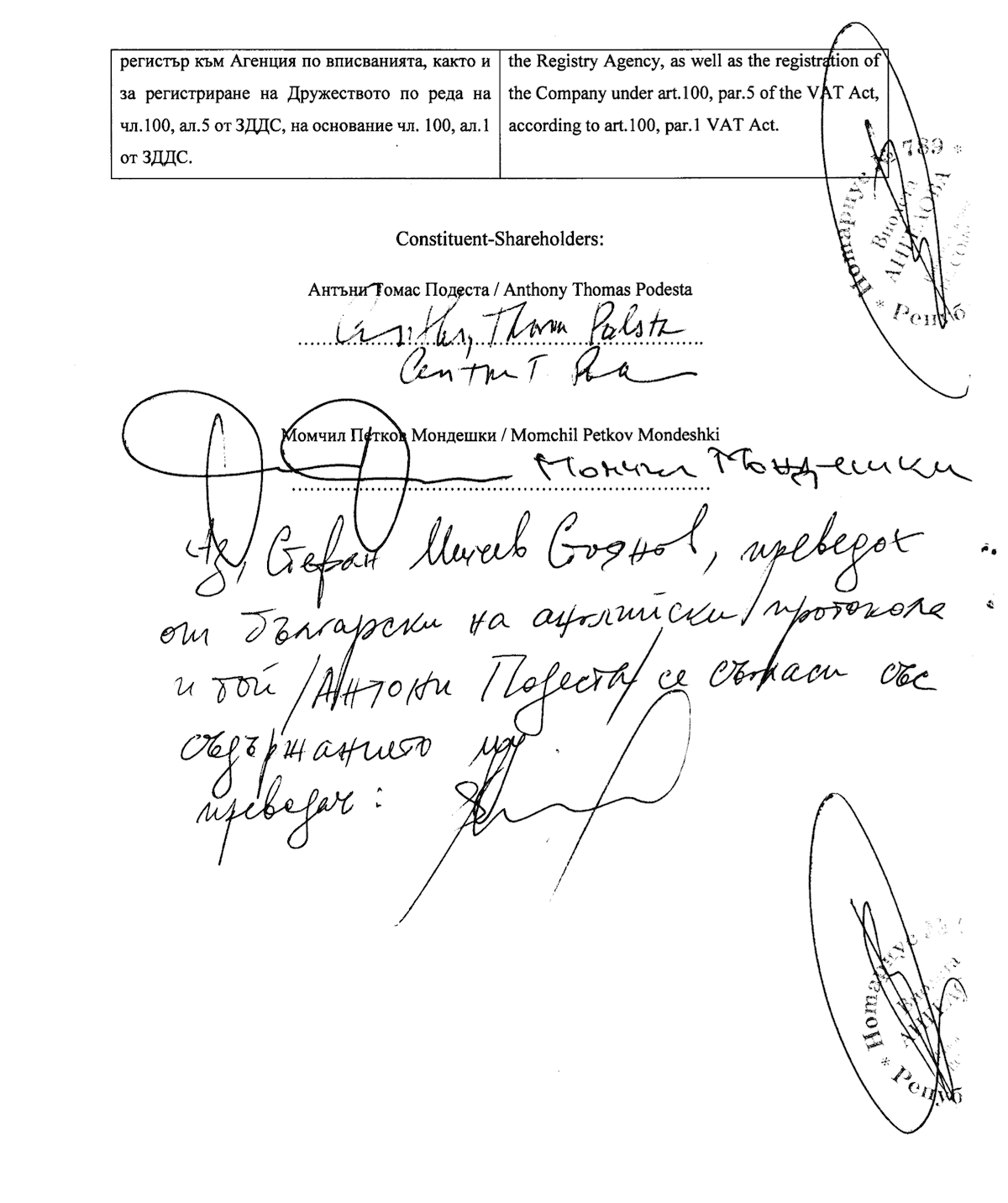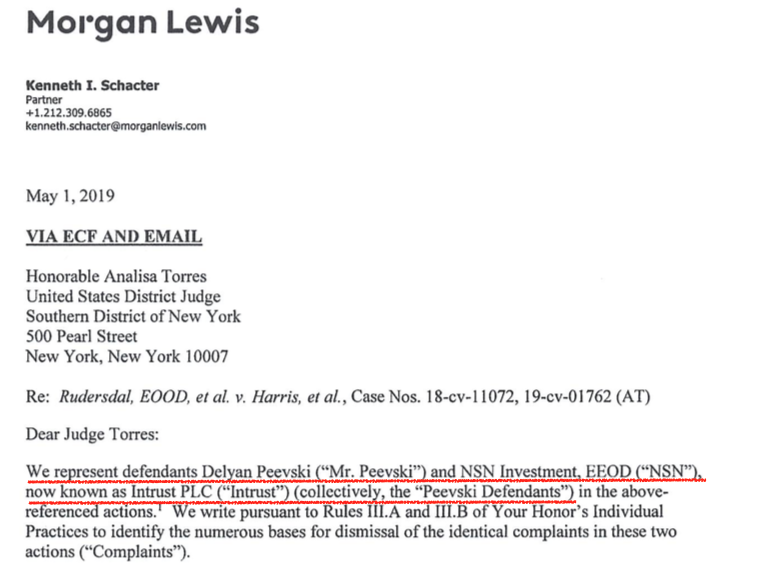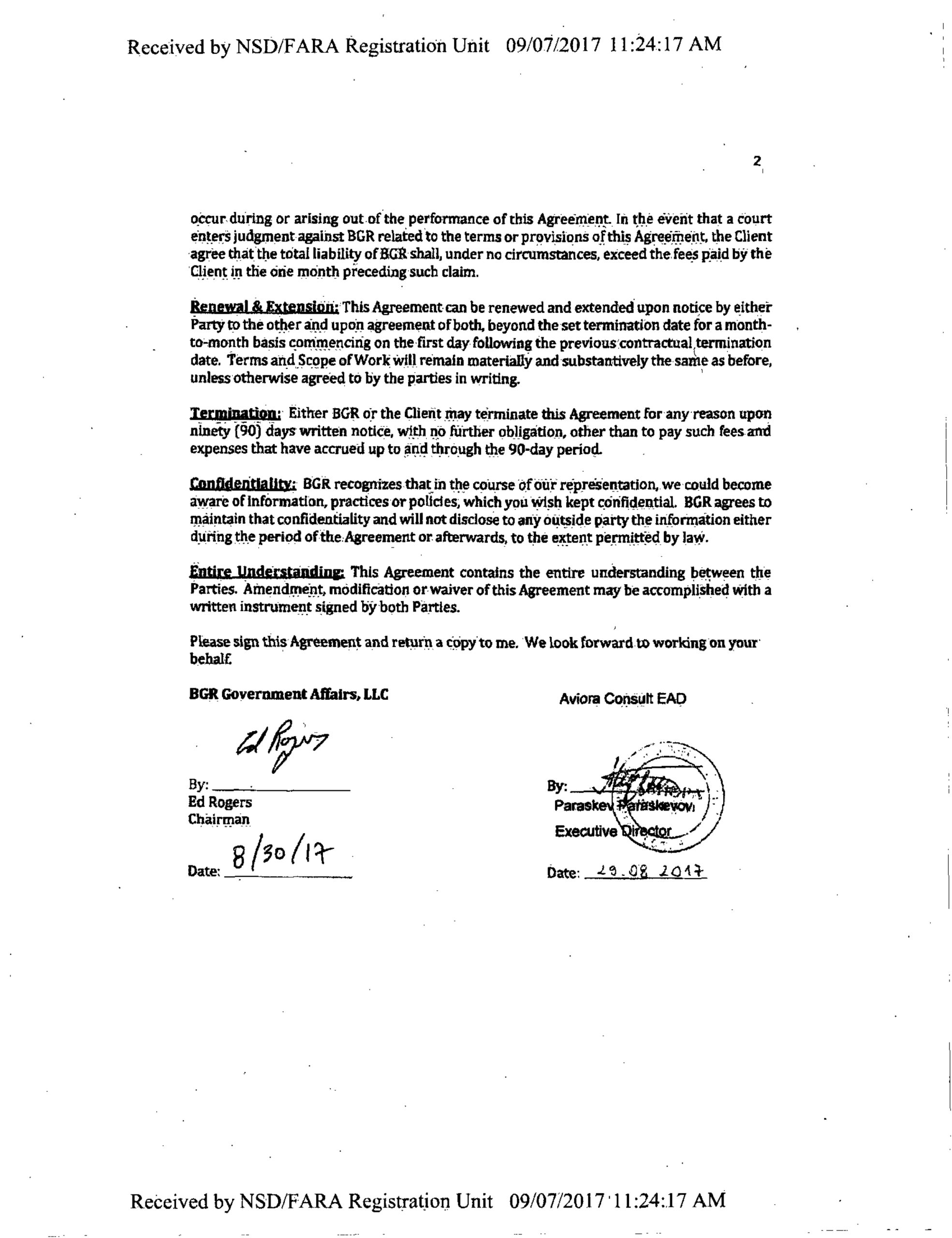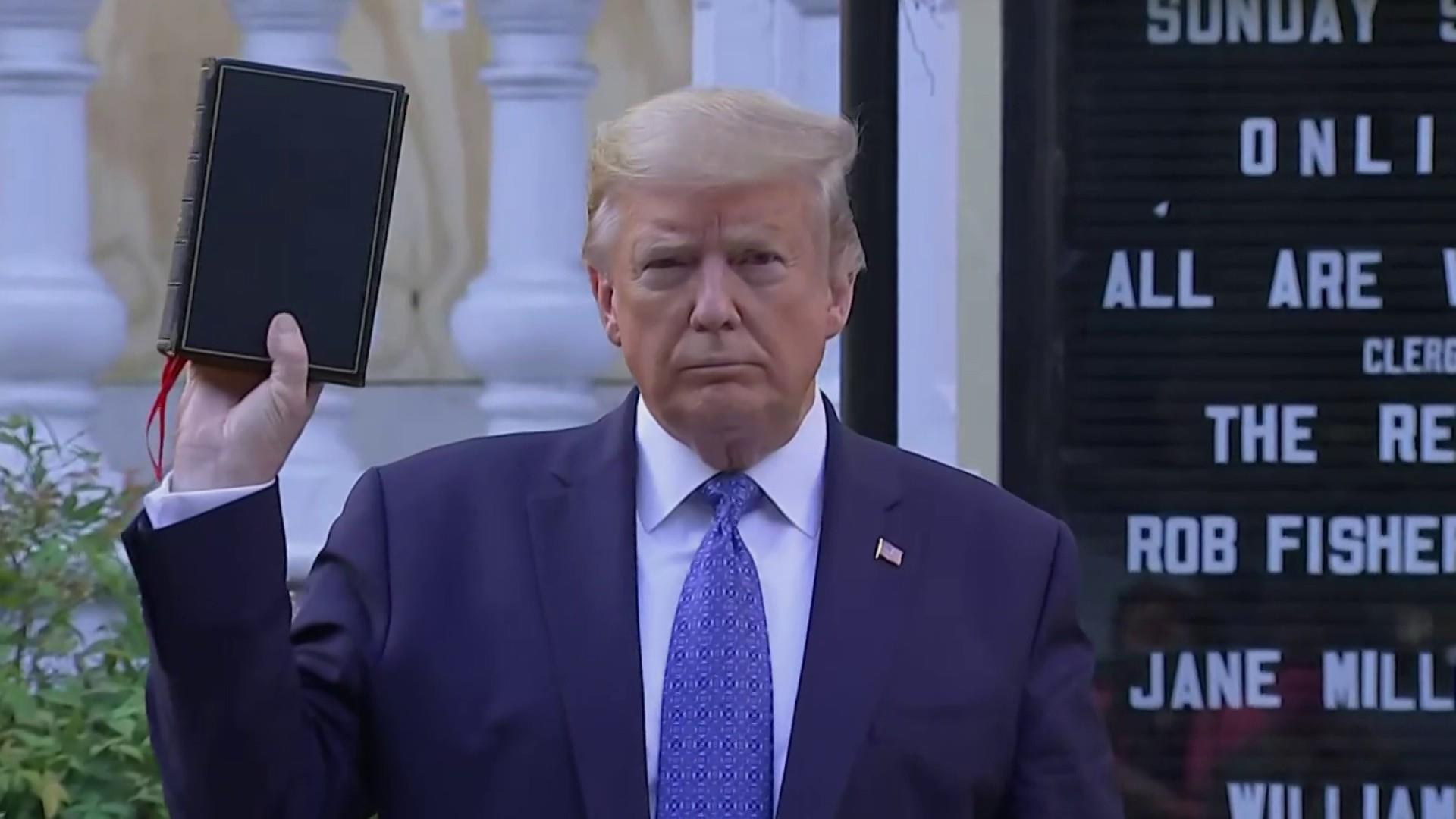POWERFUL US LOBBYIST AIDS BUSINESSES LINKED TO SANCTIONED BULGARIAN LAWMAKER, HAS JOINT COMPANY WITH NOTORIOUS ATTORNEY
United States (US) Democratic Party lobbyist Anthony Podesta has signed lobbying deals worth more than USD 2 million with Bulgarian companies whose owners are linked to controversial Bulgarian lawmaker, former media mogul and oligarch Delyan Peevski, who is sanctioned under the global Magnitsky Act for his extensive role in corruption in Bulgaria. One of the contracts has not been declared in accordance with the requirements of the US Foreign Agents Registration Act (FARA), an investigation of BIRD.bg found. Another has been declared before the Senate, but not under the FARA. According to operative information from BIRD sources, there have been meetings of Podesta with Peevski in Dubai. In Sofia, he has started a business with “Peevski’s Trojan horse”, attorney Momchil Mondeshki.
Anthony (Tony) Podesta is a well-known power-broker, lawyer, a donor to the Democratic Party and has warm ties to the Biden administration. He has lobbied for Ukrainian President
Viktor Yanukovych in the past and has also failed to declare this fact, the
New York Times reports. His clients include Egyptian dictator
Hosni Mubarak, the Burmese junta and Saudi officials. His younger brother,
John Podesta, is also a prominent figure in the Democratic Party who served as White House Chief of Staff to President
Bill Clinton from 1998 to 2001 and Counselor to President
Barack Obama from 2014 to 2015. John Podesta’s leaked emails published by WikiLeaks caused a huge scandal in the US.
In 2017, Tony Podesta’s lobbying firm was going through difficult times as a federal investigation was launched against it in connection with another Washington lobbyist, Paul Manafort. Investigators were interested in whether he had violated the rules for declaring lobbying activities under the FARA.
At the time,
Tony Podesta was
attacked on Twitter personally by then-President Donald Trump, who wondered why Podesta had not been detained in the investigation. In the end, Podesta was not charged and the probe was
dropped by US authorities two years later, in 2019.
Due to the deteriorating reputation of his company and the refusal of banks to work with it, in 2017 Podesta closed his lobbying business and devoted himself to his hobby as a collector of paintings and sculptures by famous artists.
As such, he also made headlines in Bulgarian tabloids. At the end of July 2021, the famous power-broker toured the capital Sofia’s exhibition galleries together with art dealer and gallery owner
Stefan Stoyanov, with whom he has long been close.

Tony Podesta celebrates his birthday in October 2021 in the company of Stefan Stoyanov
Photo by: Politico / BIRD.bg
But this period of sitting on the sidelines seems to be over for Podesta. He is returning to the lobbying business with new multimillion-dollar contracts with the Chinese Huawai and Bulgarian companies, the
New York Times reports.
In fact, his visit to Sofia includes discreet business meetings and contracts worth a lot of money. What the companies that Podesta deals with in Bulgaria have in common is that they are all associated with
Peevski.
Another embarrassing fact is that not all of Podesta’s contracts with Bulgarian companies have been declared under the FARA, according to a BIRD check into US lobbyists’ registers.
Tony Podesta visited Sofia again in October 2021, after meeting with Peevski in Dubai. In November he officially registered a consulting business in Bulgaria together with lawyer
Momchil Mondeshki, who is known as someone belonging to Peevski’s trusted circle.
The US lobbyist left unanswered our request for an interview sent by e-mail a week ago.
From the “doyen of Bulgarian organized crime” to sanctioned under Magnitsky oligarch
On July 13, 2021, Podesta signed a contract with the Bulgarian company Protos Energy to promote the company’s interests before all relevant US government officials such as the White House, the White House National Security Council, the Department of Energy, the leadership of the House and the Senate and their energy committees.
The contract with Protos, worth USD 300,000, is for the period from July 21, 2021 to December 2021, and the payment was made on July 21 from the Protos account in the United Bulgarian Bank (UBB), account number 1087 7040 40.
Protos Energy is owned by Georgi Samuilov, who confirmed the lobbying contract in a telephone conversation with a BIRD reporter. He said he had hired Podesta to lobby because his energy company, one of the largest in Bulgaria, had an interest in the liquefied natural gas market in the US. Samuilov declined to provide further details but said he had known Podesta for many years.
Podesta declared this lobbying activity in the database for disclosing information about lobbying of the US Senate on August 23, 2021. The documents also include another company owned by Samuilov, INSA Oil. On October 20, 2021, Podesta also submitted a report showing the amount of USD 500,000. This means that he has received other payments besides the first one from Protos.
INSA Oil is one of the largest Bulgarian gas and oil companies and is also owned by Georgi Samuilov
The lobbying agreement in favor of Protos also includes the US Department of Energy. But there is no information about Protos Energy or INSA Oil in the FARA official database. The requirement under FARA is to declare lobbying before it starts.
In the 1990s, the owner of Protos Energy and INSA Oil, Georgi Samuilov, worked for the Multigroup holding company, described in US State Department diplomatic cables as the “
doyen of Bulgarian organized crime.”
Multigroup boss Iliya Pavlov was shot dead by a hitman in 2003.
In 2009, the former chief of the Main Directorate for Combatting Organized Crime (GDBOP) Vanyo Tanov, who later became head of the Customs Agency,
told Parliament that Samuilov had been involved in multimillion-dollar VAT and tax fraud but the latter was never arrested and the VAT fraud case was never brought to court.
As of recent, Samuilov is suspected of being the frontman of oligarch Delyan Peevski. The business weekly Capital
reported that according to numerous sources, a company, which bought properties worth millions from Peevski, is controlled by Samuilov.
In June 2021, the United States Department of the Treasury’s Office of Foreign Assets Control (OFAC)
sanctioned Peevski under the Magnitsky Act for his extensive role in corruption in Bulgaria. The State Department also
publicly designated Peevski as a person involved in corruption.
Asked by phone if he had a connection with Peevski, Samuilov said he had never met him, did not know him personally and had nothing to do with the company that bought the oligarch’s property.
Contract with Hydrostroy
Podesta’s second contract worth USD 1.2 million is with Hydrostroy JSC, owned by
Veliko Zhelev.
The contract mentions the same lobbying activities in the interest of Hydrostroy before the US government as the ones in the contract with Protos Energy. The contract runs from August 16, 2021, to August, 16, 2022 and payments are due quarterly. The first payment was invoiced to Podesta on August 16, 2021.
There is no information about this contract in the databases of the US Senate and of the FARA.
Hydrostroy is one of the largest Bulgarian construction companies, which prospered under the former governments of Prime Minister Boyko Borisov. In 2016, Hydrostroy
acquired the company
Vodstroy 98 , which is allegedly controlled by Peevski. Vodstroy 98 was officially owned by
Ivan Mirinski.
After Borisov left office, the new Interior Minister, Boyko Rashkov, accused the owner of Hydrostroy (without mentioning him by name) of syphoning money from road construction.
On October 25, 2021, Rashkov took part in a talk show on TV channel bTV and said that an unnamed businessman had sent BGN 21 million to the United Arab Emirates (UAE), linking the origin of the money to a multimillion-dollar road construction fraud known as “Hemus Gate” and named after the Hemus Highway which remains unfinished after long years of construction.
Asked who the businessman he was talking about was, Rashkov declined providing a name but used a metaphor in Bulgarian alluding to Veliko Zhelev.
By the editorial closure of this article, Hydrostroy did not respond to our request for contact with Veliko Zhelev, sent to the official company email.
Lobbying for a shady Bulgarian arms dealer in Riyadh
However, these are not the only contracts signed by Podesta in Bulgaria in 2021. Another shady Bulgarian businessman secured his services for an arms deal with Saudi Arabia in August 2021.
This is Kiril Klenovski, known in the past as the right hand of Georgi Iliev, the boss of organized crime group
VIS, who was shot dead by a hitman in 2003. The Iliev brothers and Klenovski had a joint business in the 1990s through VKG Group.
Klenovski, through his company Water Stone, is a tenant of the infamous luxury apartment with armored glass at a prime location in downtown Sofia. In the past, it belonged to fugitive banker Tsvetan Vassilev, former majority shareholder in the collapsed Corporate Commercial Bank (CCB) and is now owned by financier Emil Harsev.
Klenowski is currently exporting weapons and ammunition through his companies Water Stone and Rearm. His contract with Podesta is for Rearm for lobbying the Saudi Ministry of Defense in connection with an upcoming tender. It was concluded on August 15, 2021, for a total value of USD 400,000, and Podesta can receive 4% of the commission based on a successful transaction.
BIRD has data that Klenovski maintains accounts in the state-owned Bulgarian Development Bank (BDB), from where the first tranche of USD 100,000 was transferred to Podesta’s account in the Bank of America on August 25, 2021.
However, an inspection of the register of the Interdepartmental Commission for Export Control and Non-Proliferation of Weapons showed that Rearm did not have a license to export weapons and ammunition. There is no license for Water Stone either, which means that exports are made through other companies, and Klenowski’s companies mediate in the transactions.
Asked on the phone for comment, Klenovski said he was abroad and did not remember the contract with Podesta, as he had many different contracts.
Partnership with Peevski’s “Trojan Horse”
On November 8, 2021, Anthony Podesta and attorney
Momchil Mondeshki established the company Podesta and Mondeshki with a capital of BGN 1,000, in which they have equal shares. The main subject of activity of the new company is consulting services in the field of business and management.
The company contract was registered with a notary, and Podesta’s friend
Stefan Stoyanov provided translation services.

Momchil Mondeshki became infamous over the
Yaneva Gate recordings, in which he discussed with judges Vladimira Yaneva and Rumyana Chenalova power-broker schemes.
These secretly recorded and leaked conversations revealed the Mondeshki is especially close to Delyan Peevski, who had to approve the trustees of the failed CCB. In a publication of Capital, he is mentioned as “Peevski’s Trojan horse” because of his role in the liquidation of the assets of the collapsed bank.
Two years ago, Bivol managed to catch on camera attorney Mondeshki at an exhibition in Hanover, but he refused to answer questions and his bodyguards were aggressive towards the film crew.
BIRD tried to contact the attorney by phone but he did not pick up and did not respond to messages.
Meetings in Dubai and Sofia
According to operative information of BIRD, the meetings of Podesta in Sofia had been held in the hotels “Sense” and “Intercontinental” and had been monitored by Bulgarian and partner services.
A meeting had been also held in Dubai, at the “Bulgari” Hotel on September 30 and October 1, 2021. It had been attended by
Delyan Peevski, his lawyer
Alexander Angelov,
Georgi Samuilov and Stefan Stoyanov. This meeting had been also monitored by partner services.
Before BIRD, Georgi Samuilov denied attending such a meeting. We asked the same question over the phone to Stefan Stoyanov. When he heard what it was about, he interrupted the conversation with the excuse that he was in an important meeting with artists and asked us to send him questions by e-mail. Stoyanov did not answer the questions we sent by the editorial closure of this article.
On October 3, Peevski returned to Bulgaria on a flight from Dubai. This period coincided with the publication of the Pandora Papers, with Peevski being the first politician revealed to have secret offshores. On October 6, he was summoned for questioning by the Bulgarian National Security Agency (DANS).
It is not clear what followed from this interrogation, but in the meantime Peevski gained immunity as a Member of the 47th National Assembly (Parliament).
Who are Peevski’s lobbyists and lawyers in the US?
Already in 2017, the company of attorney Alexander Angelov, Aviora Consult, hired the US lobbying company
BGR Government Affairs to assist Delyan Peevski. BGR’s latest contract with Aviora is for
USD 30,000 a month and is from the end of 2020, but is still active in the FARA database.
After Tony Podesta’s problems with the American judiciary in 2017 and the collapse of his business, some of his most prominent employees
joined BGR.

Apart from that, Peevski has hired one of the most expensive law firms, Morgan Lewis, to defend his interests in the RICO lawsuit filed in New York against him.
The Bulgarian “Magnitsky” list
After the US-imposed sanctions on Peevski, the Bulgarian caretaker government prepared a Bulgarian “Magnitsky” blacklist, which includes individuals and companies associated Peevski and two other sanctioned Bulgarian nationals.
It is noteworthy that attorney
Alexander Angelov is missing from this
list, despite revelations from the Panama Papers dating back several years that he is Peevski’s strawman in
key offshore companies.
The Bulgarian list also lacks the company Aviora Consult, which represents Peevski before lobbyists in the US and makes payments to his lawyers.
An investigation by Bivol
based on tax documents showed that millions had been delivered through Aviora Consult personally by Peevski and the Bulgartabac tobacco holding company associated with him.


The origin of Peevski’s money is unclear. He is not registered for VAT and should not be able to operate with such amounts.
So far, there is no evidence that the Bulgarian tax and financial intelligence in DANS have taken specific actions to verify and clarify these remittances. Moreover, Peevski’s companies are selling properties for millions, which should not be possible after Bulgarian banks declared they would stop working with companies on Bulgaria’s “Magnitsky” blacklist.
The offshore companies of
Peevski and his mother
Irena Krasteva revealed by the Pandora Papers were not included in the Bulgarian ‘’Magnitsky’’ list either. There are also no consequences for “Peevski’s bankers”
Tseko Minev and Ivaylo Mutafchiev, who emerged from “Pandora” as welll.
However, this inexplicable inaction of the Bulgarian authorities may come to an end if another investigation is launched in the US against Tony Podesta for his undeclared lobbying agreements with Bulgarian companies and for his actions in favor of a person sanctioned by the US for corruption.
Bivol.bg / BIRD.bg Teams 








